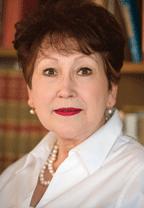
Political pundits and even psychoanalysts have attempted to describe candidates by highlighting personality traits such as practical and sensible or contentious and untrustworthy, but they minimize other characteristics.
Effective leaders, in fact, have core values and principles as characteristics that let them function well when society is chaotic and intractable. They accept difficulties openly and take total responsibility for their answers, especially when their own inner resources are put to the test. Effective leaders remain calm throughout crises that inspire approval from anxious constituents. They are forward thinking with visions for improving society (always ensuring human rights) and firm in the steps to realize their promises. To confront social unrest and unfairness, for example, President Franklin Roosevelt vowed to help the unemployed by creating jobs and to “preserve … their self-respect, their self-reliance and courage and determination.” He succeeded on both counts.
The careers of respected Jewish American leaders can guide us as voters. United States Sen. Diane Feinstein and Supreme Court Justice Louis D. Brandeis have demonstrated leadership characteristics that enabled them to overcome significant obstacles and achieve notable goals.
Sen. Feinstein’s political career illustrates effective leadership. She had the courage to become the acting mayor, in 1978, after the assassinations of then Mayor George Moscone and city board colleague Harvey Milk. As a calm presence in a tragic and volatile situation, Mayor Feinstein gained the trust of a troubled public and consequently, won two four-year term elections to continue serving as mayor.
Mayor Feinstein adopted, not surprisingly, public safety as a top priority. Her anti-crime measures resulted in a 27 percent drop in the crime rate and the police response time for major emergencies was reduced from eight to two minutes. Fiscal accountability and economic growth were, additionally, important visions for her. She managed the San Francisco’s finances to balance the budget for every year of her tenure and led the way for the city to establish trading ties with the Pacific Rim nations. Mayor Feinstein gained a reputation for identifying tough problems and finding workable solutions. City and State magazine named her the “Most Effective Mayor” in America in 1987.
Later, as a member of Congress, Sen. Feinstein’s commitment to public safety extended to co-authoring the Gun Free School Act. Her initiative ensured the safety of school environments, especially protecting students and teachers. Sen. Feinstein co-authored the Hate Crime Sentencing Enhancement Act, which increased the penalties for hate crimes. It sent a strong message that federal law protected vulnerable individuals and minority groups, like the Jewish people.
This year we celebrate the 100th anniversary of the confirmation of Louis D. Brandeis, the first American Jewish judge to serve on the United States Supreme Court. When President Wilson nominated Brandeis, members of Congress initially backed away because the nominee was perceived as a “radical.” After all, Brandeis accepted cases without pay; supported workers against corporations; and decisively sided to protect the public from government spying. Today, however, he is remembered as a visionary and great justice. Brandeis gave a much-needed voice for citizens from the late 19th century into the 20th century.
Louis D. Brandeis first earned the reputation for being the “people’s attorney” by envisioning to improve people’s lives. He did so by initiating pro bono work, i.e. taking cases without pay. Brandeis explained, “The public is often inadequately represented or wholly unrepresented. That presents a condition of great unfairness to the public. As a result, many bills pass in our legislatures which would not have become law if the public interest had been fairly represented.” Brandeis accepted cases that upheld fair workplace and labor laws; he supported the minimum wage as an established norm.
Brandeis accepted the difficulties of fighting for the public good against the power of big business. He was resolute in his thinking that big business corrupted because it closed off avenues of economic independence and equal opportunity for employees. To balance the influence of business, Brandeis supported creating industrial unions for employees and to have workers participating as managers.
Brandeis believed in lifelong study and learning for himself and for all citizens. He cautioned that the essential need was to evaluate the facts and consider all sides of the arguments to the questions asked. We have a duty, as voters, to consider Brandeis’s advice. We must assess facts, not fiction. We must be alert for grand promises that sound too good to be true. We must evaluate the candidates’ abilities by noting how they managed past challenges with their responses and actions.
The strongly held principles of American Jewish leaders remind us to prepare ourselves for the privilege and responsibility of citizenship.
Mary Greenberg, Ph.D. serves on the State of Kansas Holocaust Commission. Her speaking engagements on preventing anti-Semitism, and the link between anti-Semitism and leadership, are based on her research that advances the study of the Jewish people in the Diaspora.